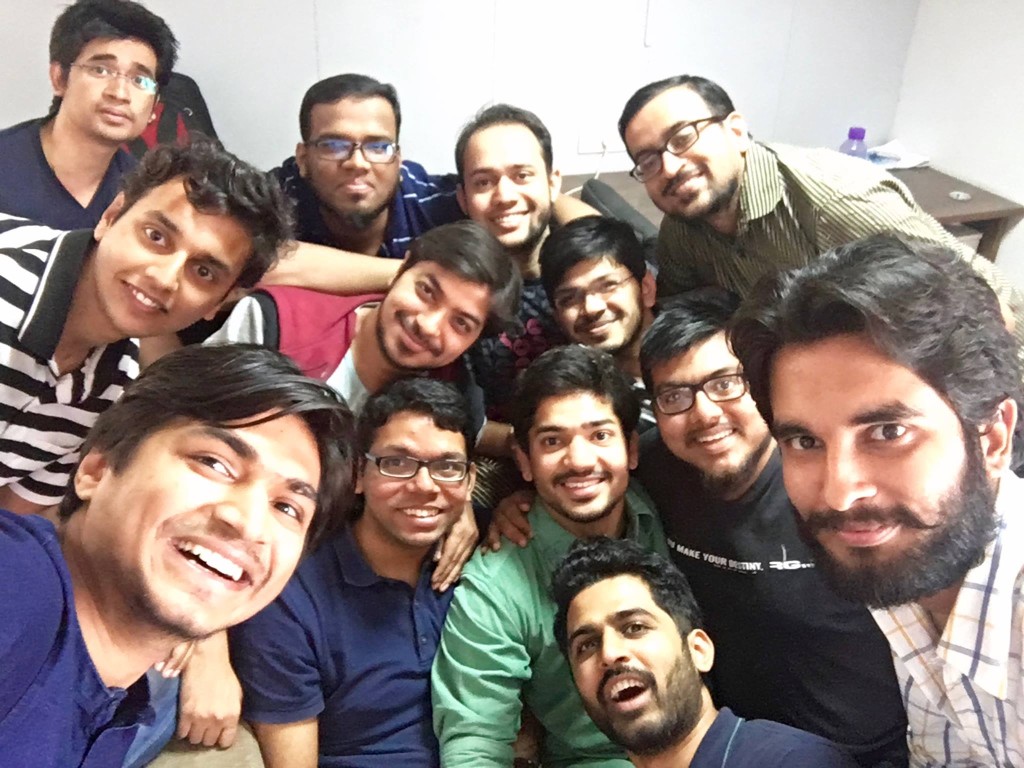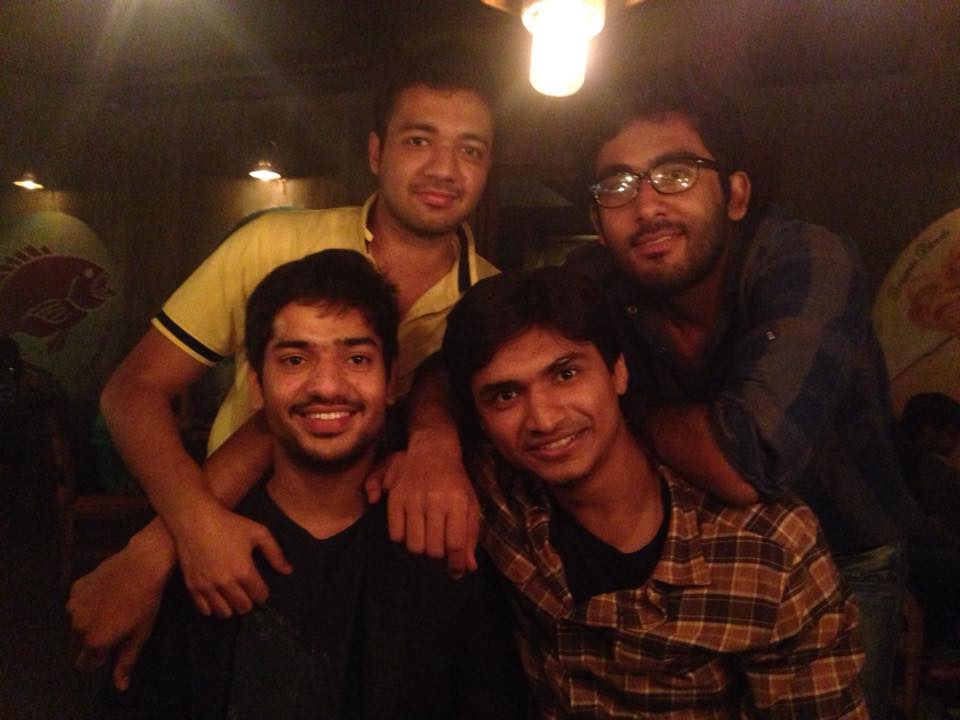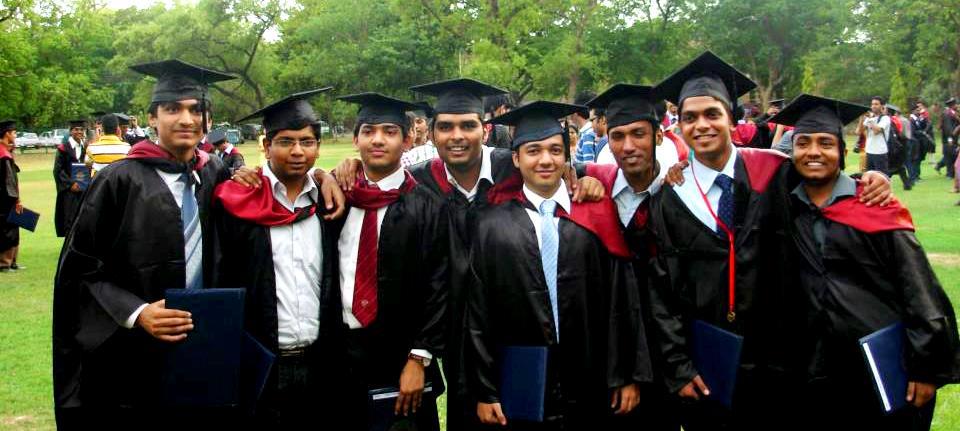How was Porter born?
It all started with Pranav and me spending our free time discussing potential startup ideas while Pranav was at JP Morgan. Our first serious idea was to organise the black and yellow cabs in Mumbai but as we dwelled on that idea, the ‘unionbaazi’ emerged as a big hurdle and the realisation dawned that Ola would eventually enter this space. So it was a no go. We then noticed that the tempos plying the streets were disorganised and the market had great potential.
To start things off, we talked informally to the tempo drivers and tried to understand the business. Questions like ‘number of trips per day’, ‘wage per trip’, ‘usual customers’ gave us a lot of insight. We noticed that the problems they were facing were much more complicated and numerous than the cab drivers. So, the challenge of an unexplored and convoluted market convinced us to dive into it. We began work on this project in February, 2014 and spent our time till August, researching. It involved more serious surveying of the drivers and meetings with potential customers like shopkeepers and even larger institutions like ITC.
“ThePorter is a revolutionary approach that makes intra-city pickups and deliveries thoroughly efficient and reliable. We have a varied fleet of vehicles under our command, ranging from Tata Ace to Tata 909, spread all over Mumbai. Our partnered drivers are tracked on real-time basis, ensuring that a mini-truck that exactly satisfies the customer’s requirement is made available to him, within 60 minutes. We intend to give structure to this largely unprofessional and unregulated industry. It’s as simple as calling a cab: Just go ahead and give it a try.”
When were you bitten by the entrepreneurial bug?
I always had the entrepreneurship ‘keeda’ and was sure that I wanted to do something on my own even before entering IITK. I tried to satiate this hunger by exploring some startup opportunities while on campus but nothing materialised. I even attended lectures conducted by the E-Cell but there wasn’t much to learn there. One thing that did remain constant throughout my stay in campus were the late night ‘bullas’ on startup ideas. I would listen to my friends’ ideas, share my own and hours would be spent in this process. These sessions helped immensely in preparing us for the ideation process of ThePorter.
How did you secure the all-important funding? Any memories of feeling intimidated?
I have to admit that we were lucky when it came to securing funding. Big names in the industry like SAIF, Nexus had just started doing smaller rounds. A friend of ours was an analyst in Nexus and through her, Nexus approached us. At this point, we were not even looking for funding. We met with the MDs of all the big firms but it turned out that we were too small to secure backing from them. We got introduced to Kae Capital through SAIF and received our first funding from them.
I would say that securing funding is indeed a bit daunting but we overcame it by being well prepared. Instead of rushing out to grab funding, we sat down and acted as the Devil’s Advocates for our startup and found solutions for all the foreseeable roadblocks. The people in charge of the VC Funds have a strong hold on both numbers and business. They can catch an unprepared pitcher in minutes and as soon as you fumble to find an answer to their question, that’s where their interest ends.
This is where all those hours of ‘bulla’ and the extensive ideation during our time at our respective years helped. We had gone over all possible situations and had a ready answer for every question thrown at us.
It must have been an awesome experience starting up. What are the important lessons you have been able to take back?
The first thing that I realised was that prospective founders should start saving money early. It really helps when you need to bootstrap in the early stages.
Being a young company, we have not faced too many problems till now. The biggest obstruction to operations till now was the opposition from unions. We had to shut down a large percentage our operations due to this issue. They leaders were not happy about us organising the sector because it would diminish their nuisance value. After all unions are all about gundagardi. To solve this issue, we hired a guy who would handle the meetings with the union leaders since we had no experience in interactions of this nature.
It did not seem like the leaders were in any mood to compromise their stand but we kept holding these meetings. In each of these we made it a point to meet the drivers personally. We tried to convince them of the advantage of signing up with our platform. The perseverance finally paid off as we got some drivers on board, inspite of the opposition from the unions.
Forgive me for this cliched question about family but I would still request you to answer it.
The cliche exists for a reason. I come from a service background which has nothing to do with business. When I first broke the news, it came as a shock to them. But the atmosphere in the country at that time worked in my favour. Television advertisements were dominated by Flipkart, Snapdeal and other startups. This instilled some confidence in them but they were still reluctant. They had no idea about the technical aspects of startups like funding so it aggravated their apprehension. Finally a deal was reached in which I promised to give ThePorter time only till March ’15 and no more. The rest is history, I guess.
All of our readers would love to hear of your life at IITK. Could you share some experiences?
The boring stuff first. I graduated from the EE Department and had an interest in Communication Theory. Finance was also something that captured my imagination while at IITK. I was around resident of Hall 5.
I tried to experience as many things as possible during my first year. I took part in the Nukkads during Dram Eve but had to give it up after the first year because of academic commitments. Apart from this involvement, I juggled a lot of other clubs but did not pursue anyone seriously. Coming to the festivals, I had some organisational role in each of the three. I was the PR Head in Techkriti and the FMC Coordinator in Antaragni. Honestly. I used to enjoy Techkriti more than Antaragni.
Being in the PR Cell, I got to interact with extremely interesting personalities from all around the globe. Going to pick celebrities up from the airport and showing them around the campus was a high point of every Techkriti.
My first year was the most eventful. Hall 5 had been converted to a UG hostel just a year ago and a lot of effort was being put into developing a ’Hall culture’. I got involved in this process heavily and was instrumental in establishing inter wing events like Voila, Vertigo. Ian interesting responsibility was being entrusted with finalising the name for the Fine Arts night, which would eventually be called Voila. My interaction with the HEC was quite frequent and the President was heavily into dram, so my induction into dramatics was mostly through him. I also became a student guide in my second year and was able to make friends in the junior batch as well.
My first year wing was C-Top and there was an interesting story about Narayan Murthy having lived in the room directly beneath mine in C-Mid. The one thing that stays with you forever are the experiences with the wing mates. We had a lot of fun in the wing. The bulla sessions and poker nights will always be etched in memory. We also made wing trips to Nepal and Lucknow. At that point we had single rooms in Hall 5 and the double rooms were decided through lottery.
Dare I ask IITK vs. other institutes when it come to entrepreneurship?
I have felt that the academic talent, especially the CSE prowess, is more in IITK. But the enthusiasm for starting up is definitely lacking. Students here gravitate more towards the ‘safe’ option of jobs in big firms. Kharagpur, Bombay and even Madras do better in this regard. The culture in IITB can be explained due to the proximity of Powai but KGP is still a mystery to me. IITK has produced some exceptional entrepreneurs but for some reason they are not able to inspire the next generation. The PR is a bit weak on campus and the stories of success of Alumni do not reach here. I feel some of it also has to do with the image of IITK which is viewed as a purely academic institute with no inclination towards entrepreneurial endeavours.
Bacchhon ke liye kuch fundae?
The biggest lesson I wish to convey is ‘ Don’t waste your time’. There is no dearth of activities on campus. If academics interest you, do that, if a club excites you, join it. You will only feel regret later when you look back if you don’t make use of your time now. I really regret not doing the joyrides that were available on campus back then. Activities like these cost a fortune outside the campus. Do something with you time and experience everything. Make lots of friends on campus because these people are going to become invaluable contacts later on and you can turn to them for help anytime. We actually have a friendly tradition of trying to attract the most students from our respective alma maters, i.e. IITK and KGP.
Interviewed by Simrat Singh


















































